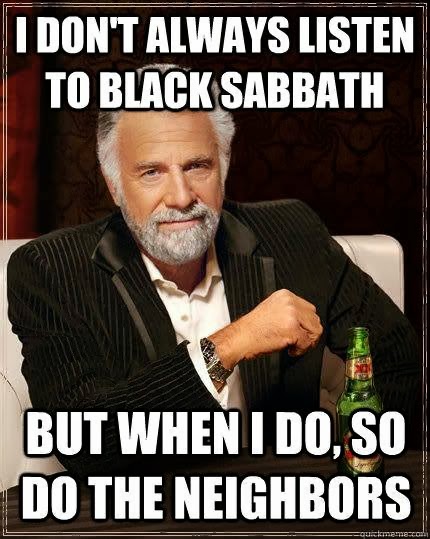 |
| Lyle Lovett and about half of his Large Band |
And so, the day arrived and we got to the theater and found our seats. The lights went down and the band made their way onstage. After a brief acoustic intro, Lyle began his set with a dark, quiet song called "She's Already Made Up Her Mind". We were both hooked instantly. There are few better musical experiences one can enjoy than having good seats at an old theater that was built to have good sound, with an engaging performer fronting a highly skilled band whose music encourages active listening. My wife and I have attended 2 more Lyle shows since, and last year, got to meet with him and several of his band members following the show, which made for a very memorable evening.
 |
| Lyle Lovett. A man and his Collings guitar. |
Here is Lyle Lovett's recording of the Steven Fromholz tune "Bears", which kicks off "Step Inside This House". While Lovett is well capable of having written many of these songs, I feel that "Bears" is one that hits closest to some of Lovett's own material. It's a great fit of song to artist, and that just makes me smile. Listen well to the sweet riffage played in the instrumental break!
 |
| Steven Fromholz |
Another marker of success that not many musicians can claim is a legacy. Fromholz spent decades toiling away in Texas cafes and bars, and in his songwriting notebooks, and his work made an impression on a younger generation of songwriters. Between albums that didn't get released, albums that did get released but didn't go anywhere, and a tour with Stephen Stills that soured him, Fromholz nonetheless managed to write a classic or three. At least one of them has been widely heard by the public. Willie Nelson took "I'd Have To Be Crazy" to #2 on the Country charts in 1976 and kept it there for several weeks. The others are classics to students of Texas songwriting, hungrily absorbed by a young Lyle Lovett, among others.
 |
| Fromholz and Lovett in 1998 |
 "The songs Robert Earl and Lyle learned were my songs, and Guy Clark songs and Townes Van Zandt songs and Michael Murphey songs; the songs that Lyle has now recorded. It's a very logical progression for singer-songwriters of our ilk, and I think they learned a lot from us, as we learned from the guys who preceded us."
"The songs Robert Earl and Lyle learned were my songs, and Guy Clark songs and Townes Van Zandt songs and Michael Murphey songs; the songs that Lyle has now recorded. It's a very logical progression for singer-songwriters of our ilk, and I think they learned a lot from us, as we learned from the guys who preceded us.""Lyle told me when he came to town in May to have our picture taken for the album's artwork, he says, 'Steven, I didn't have to learn any of these songs for this album. I've been doing them since I began to learn to play.' I knew he was doing 'Bears' on the road in his show some time ago. Then I started hearing rumors that Lyle had also cut 'Texas Trilogy.'" Indeed, Lovett had recorded Steven's locally legendary 10 minute suite for "Step Inside This House", along with "Bears", as a tribute to the songwriting treasures he felt that Fromholz had bestowed upon Texas, and its musical legacy.
From the 1976 Capitol album, "A Rumor In My Own Time", here's the original version of "Bears".
 |
| Happy Trails, Cowboy! |
On January 19, 2014, Steven Fromholz died from an accident with an unsecured firearm. A brief statement from his family said: "The accident involved the unexpected discharge of his shotgun when it fell from its case and struck the ground as he prepared for an afternoon hunt to address a feral hog infestation that had been menacing the goat population in Schleicher County. Steven died being a rancher, an avocation he heartily embraced." Steven Fromholz was 68.
As is often true when it comes to Americana and Roots music, it's difficult to find releases of any quality stateside, if at all, but the import labels are all over it. For about $25, you can get this fine Australian anthology of the music of Steven Fromholz, on the Raven label. Most, if not all of Fromholz' recordings are long out of print. I would advise trying to find them outside the state of Texas, unless you want ready availability and aren't concerned with price.
All of the fine recordings made by Lyle Lovett are available online, or at an emporium of musical entertainment near you. I would recommend any of them to anyone, including his 1986 debut album which, despite being the victim of dated production, has some fabulous songs on it. It's clear they had no idea of what to do with him yet. As of this writing, today's featured album, "Step Inside This House" may well be going out of print, as online pricing for a new copy seems high, but it is available used for a much more reasonable fee. Oddly, there is a near-total absence of Lyle's music on vinyl, with the exception of his most recent album, "Release Me". Mobile Fidelity, are you listening?
Most any of Lyle's recordings are of a level of quality that make them very suitable to bring along with you, should you find yourself in the market for high-end stereo equipment, like speakers. Yes, they're that good. And again, should you find that he is playing a concert in your town, then by all means, attend, and prepare to be mesmerized.












